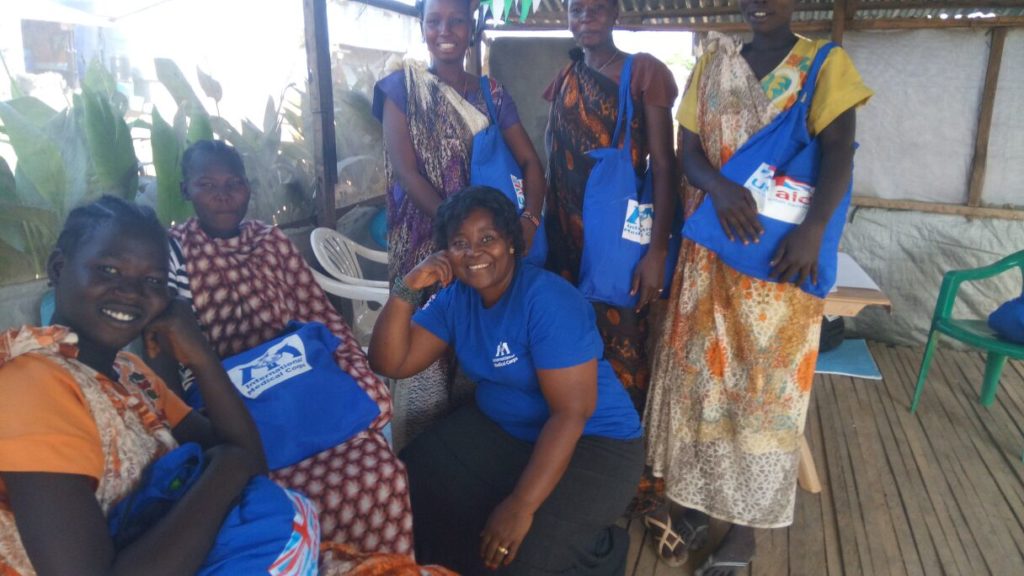As a child growing up in Liberia, “I always knew something was wrong,” says Gertrude Garway, International Medical Corps’ Gender-Based Violence (GBV) Manager in South Sudan. She watched as young girls around her were forced to marry much older men, who then raped and beat them. When these women or girls in forced marriages resisted sex, men in Gertrude’s community would tell each other: “Just keep trying every night– she will get used to it.”
Such statements personify the power dynamics embedded in acts of sexual violence, which seek to mute a women’s power, agency and independence. A woman being raped must cling to her will to live amidst her agony. Even so, the aftermath—the pain, the trauma, the shame—can often kill her spirit. As Gertrude puts it,
“Rape takes away your humanity.”
Long before the term “gender-based violence” became widely known, young Gertrude had no way to label the widespread violations against women and girls that she witnessed. Yet she could not turn away from the injustice—and so would later become a soldier in the fight against it.
During Liberia’s brutal 14-year civil war, rape became a widespread weapon. Gertrude endured displacement many times, before finally becoming a refugee for seven years in Guinea. There, in a massive refugee camp, she worked as a nurse, responsible for family-planning programs and maternal and children’s health. In the camp, she saw many women forced by NGO workers, soldiers and local leaders to exchange sex for things like camp registration or food for their children. Once again, Gertrude felt powerless to stop these horrifying violations. But in 2003, a report on sexual exploitation and abuse in the camp came out, exposing the sexual violence perpetrated by those charged with protecting and aiding refugees. Gertrude finally had language to act upon—and a pathway forward.
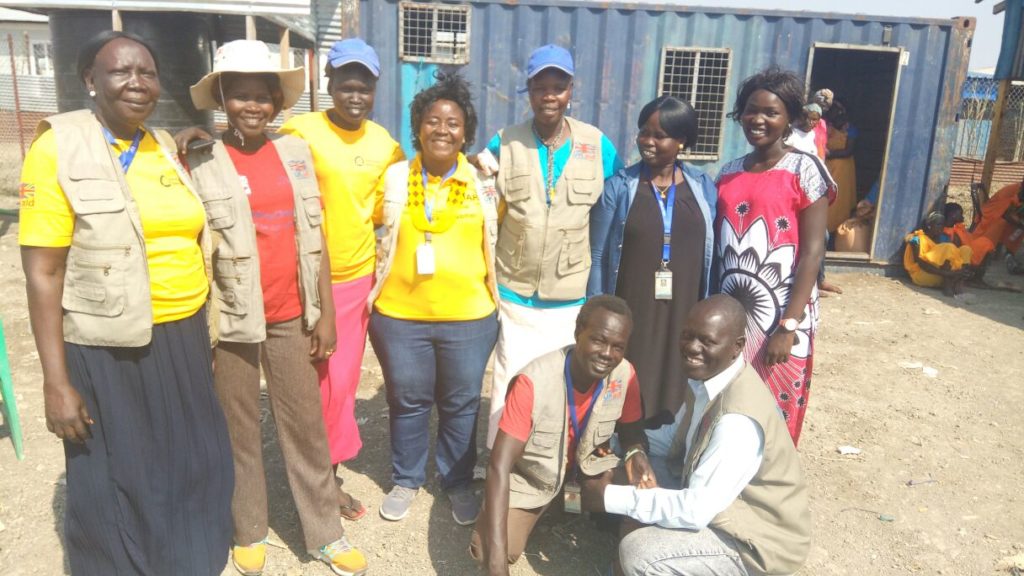
She began participating in GBV training sessions and committed herself to fighting against the injustices plaguing the lives of women and girls in her community. In those early days, Gertrude worked with the International Rescue Committee as a GBV community worker, raising awareness on GBV and providing referrals for survivors seeking support. Gertrude also worked as a volunteer with the American Refugee Council, educating commercial sex workers in Guinea on their rights and helping them take control of their health. When conflict broke out in the country, Gertrude moved back to Liberia to help the many women and girls who endured horrific sexual violence during and after that country’s war.
She tells the story of one woman who, during the war, was raped multiple times—with various objects forced into her body. Gertrude met her in a displacement camp during a ceasefire and remembers her saying, “I am trash they are waiting to bury.” The highly traumatized woman cried constantly—and, when she found out she was HIV-positive, became suicidal.
Gertrude spent countless hours, over many months, befriending this woman—walking with her, gaining her trust and helping her rebuild her will to live. With Gertrude’s support, gradually the woman began to eat again, take her HIV medication, register for college and start a business. Today, this woman—who felt she was worthless and had been left to die—has become a hugely influential business leader in Liberia and a highly vocal advocate against GBV, helping other survivors find the support they need to keep living.
Then there’s the young girl who was sexually abused by her teacher, got pregnant as a result, and then was asked to leave school. Gertrude and her colleagues found another school for her and paid the fees. Now, other girls see this as an example of a pregnant girl—and, soon thereafter, young mother—who was able to still complete school. She graduated college, began working as a manager in a local business, and is now able to support herself and her child. Says Gertrude, “She was not left behind because of the GBV she suffered.”
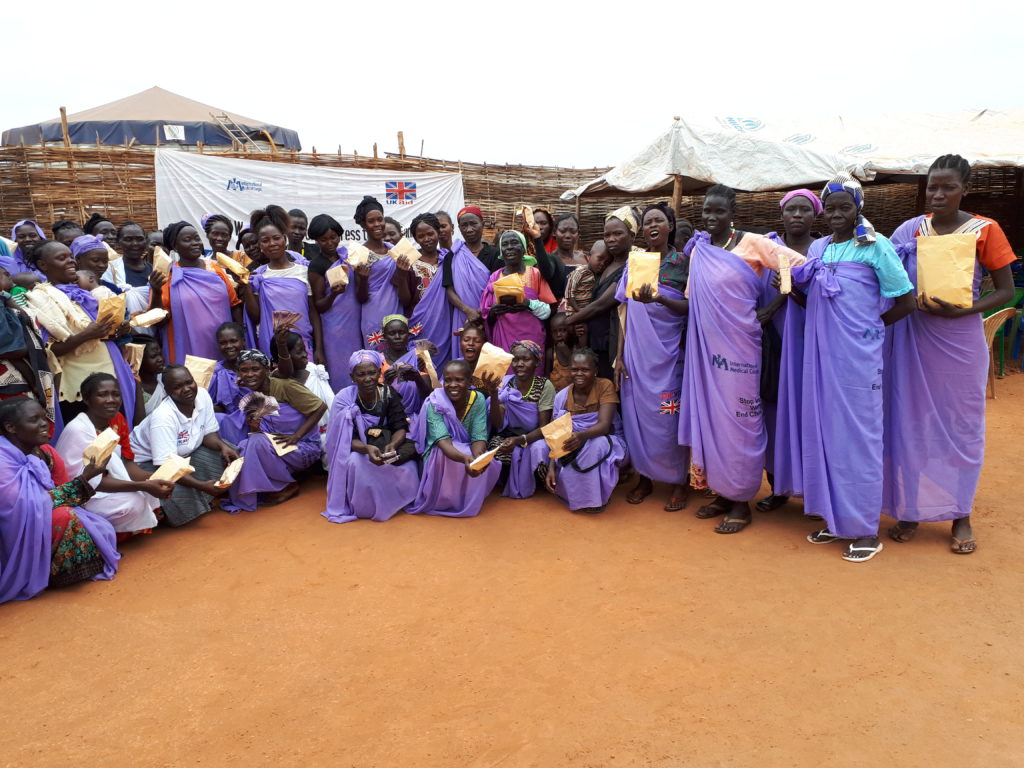
Over and over, working with thousands of survivors of rape and abuse, Gertrude has seen the power of transformation. But this is possible only because of her unwillingness to give up. “Working in the field of GBV, you fight all the time,” she says.
“You fight for the program to exist, to continue, and then you have to fight for the women and teach them to fight for themselves.”
Two years ago, Gertrude joined International Medical Corps’ GBV team in South Sudan, where sexual abuse is widespread but rarely reported, especially if the perpetrator is an armed fighter or intimate partner. Fearing reprisal from their husbands, women in these communities almost never take legal action, and GBV programs are “seen as a foreign idea” in a society deeply rooted in patriarchal traditions. Even the police largely refuse to recognize GBV as a crime unless it is perpetrated by a total stranger; often, they return women to their husbands with a reprimand to “behave.”
At the local level, one of the many things Gertrude fights is the perception that—in the words of one traditional leader before joining our GBV program—“women look for the violence they suffer.” Women often internalize such blame and shame, believing they did something to deserve the violence. This is why Gertrude and her colleagues in South Sudan engage men and traditional leaders in GBV programs that challenge their beliefs and attitudes with input from the women we serve.
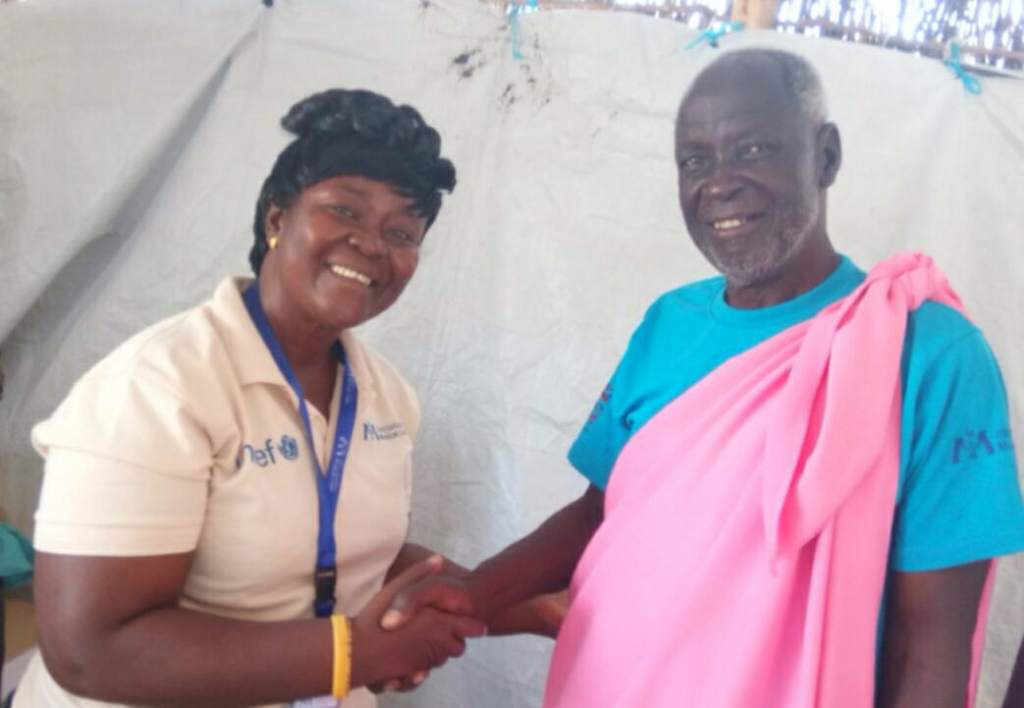
She has seen “remarkable” changes in the men—including the traditional leader mentioned above. Through several discussions and community meetings, he came to realize that women do not seek abuse, and vowed publically to help hold perpetrators accountable. Gertrude also talks of the man who came to regret ever beating his wife, and who even endured ridicule from his community for being a “less man” when he started asking his wife’s opinion and began helping around the household. Yet even in the face of such community resistance, Gertrude explains, even one changed man can set a powerful example, exponentially affecting other men beyond the program.
Though engaging men in positions of power can be “extremely challenging,” it is also “extremely important,” says Gertrude. “From my experience, women can be in power at any level, but if the men they live with do not understand why women deserve rights—and that sexual violence is a punishable crime—they will continue to abuse women in the name of their way of life.” She continues to chip away at damaging beliefs and behaviors amongst South Sudanese men—and feels encouraged by the progress being made—but it is the transformation within women and girls that most inspires Gertrude to keep fighting.
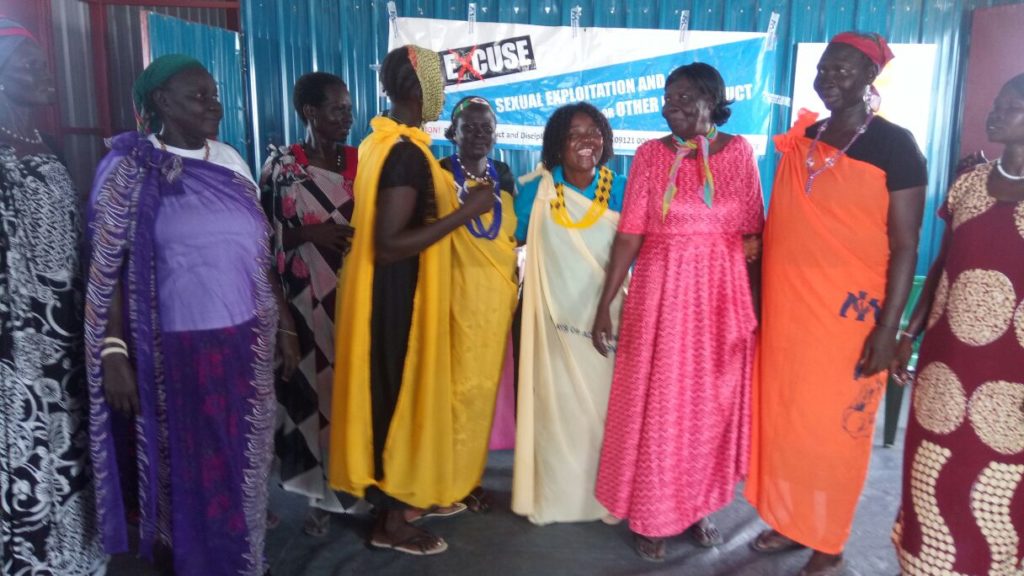
She works with so many traumatized and depressed women and girls who feel broken by the violence they endure. But when they receive psychosocial support and safe spaces, when they are engaged in livelihood activities and enrolled in school, the women and girls begin to heal, recover, open up and recognize that the violence is not their fault—or the ending to their story.
“They tell us, ‘I thought I was finished, I thought it was the end, but this program has made me see myself again as a human being who can live again in the community and have hope,’” says Gertrude proudly.
Having contributed to so many stories of transformation, Gertrude constantly tells the women and girls she works with that “change is possible.” It may be slow. It may be painful. It may be the hard-won fight of a lifetime. But when it comes to the humanity of women and girls around the world—and of the daughters being born every day—change is not only possible, it remains urgent, imperative and undeniable.
